Hyponatraemia inquiry into deaths has cost almost £15m
- Published
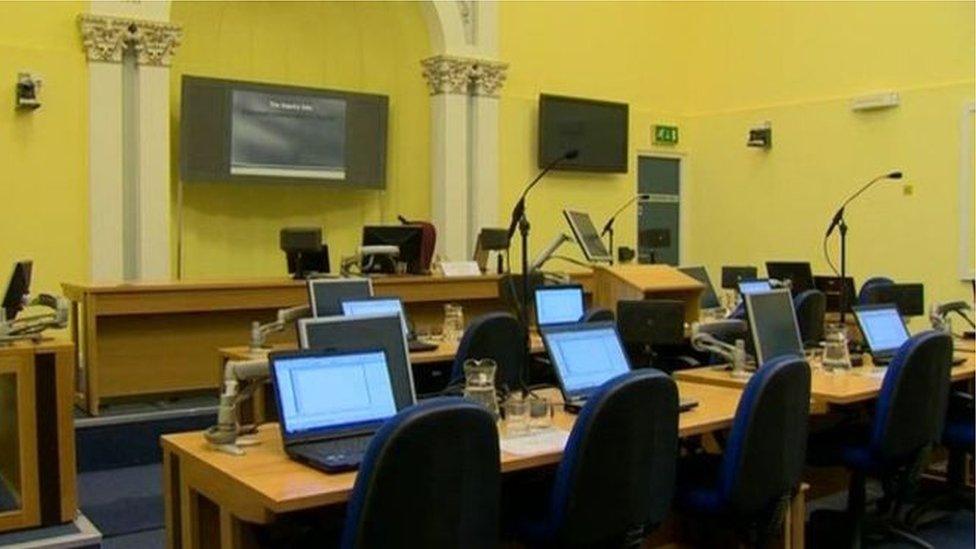
The Hyponatraemia inquiry was set up in 2004 and 179 witnesses gave evidence at Banbridge Courthouse in County Down
It has emerged that the inquiry into Hyponatraemia-related deaths in Northern Ireland has so far cost almost £15m.
The oral hearings into the deaths of five children began in 2004.
Hyponatraemia is an abnormally low level of sodium in the blood that can occur when fluid is not administered correctly.
The inquiry examined the deaths of Raychel Ferguson and Claire Roberts, both aged nine.
It also examined the death of four-year-old Adam Strain.
It investigated the events following the death of Lucy Crawford who was 17-months-old and also around issues of the treatment of 15-year-old Conor Mitchell who also died from the condition.
Deadline slipped
The families have been trying to get answers from the various health trusts involved for almost 16 years.
The deadline for the publication of the final report has slipped several times.
It is now hoped it will published early next year.
The figure, revealed by the Health Minister, showed that as well as £13m being spent by the Department of Health, in addition, the Department and the Health and Social Care Board have incurred legal costs of approximately £0.7m.
The Belfast, Southern and Western trusts have incurred legal costs of just under £1m.
'Extortionate'
The question was submitted by the TUV leader Jim Allister, who told the BBC the costs were huge.
"The inordinate delay has now been compounded by the extortionate cost. I will be seeking a full explanation and breakdown," he said.
The inquiry explained to Mr Allister that while it has made significant progress the chairman, Mr John O'Hara QC, continues to analyse extensive information.
"The chairman has made significant progress in drafting his lengthy and detailed report," it said.
"In order to be fair to all parties, he has had to analyse extensive information and evidence, both written and oral."
The inquiry received almost 13,000 documents, and took evidence from 179 witnesses over 148 days of oral hearings.
"While the chairman had hoped to complete the report by now, that has not been possible because of the complexity of the issues raised on both clinical and governance aspects of the inquiry," it said.
"Furthermore, up-to-date information has been gathered about current governance arrangements so that meaningful recommendations can be made to secure future improvements and reform."
The inquiry has been delayed by other factors, including the conclusion of a police investigation.
As a result it was suspended on two different occasions.
- Published24 September 2014
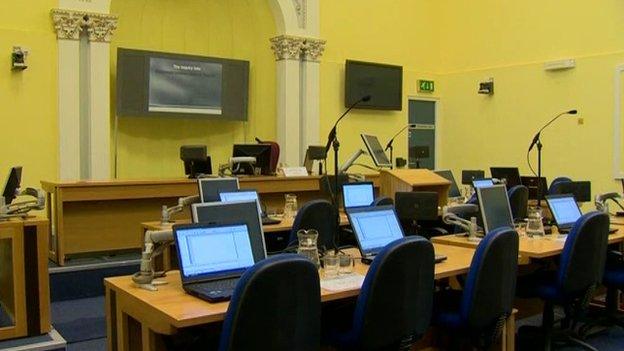
- Published1 February 2013
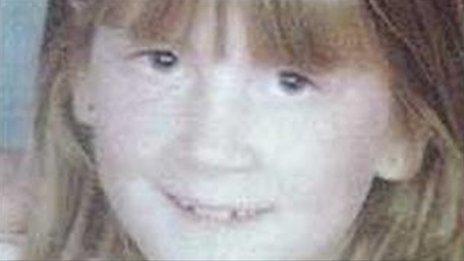
- Published26 February 2013

- Published17 December 2012
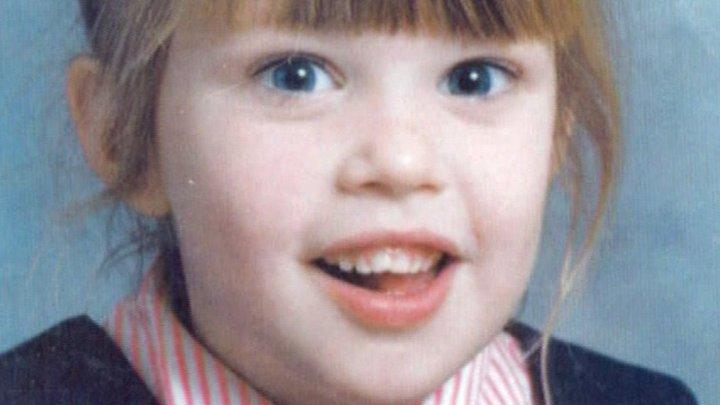
- Published27 January 2014
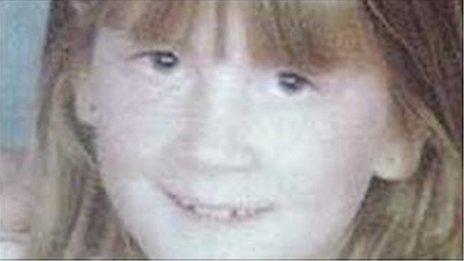
- Published17 October 2013
_adam(right).jpg)